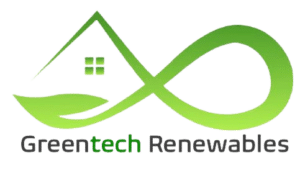The UK's sustainable energy landscape in 2024 is heavily reliant on the growth and potential of solar panels. Government incentives and subsidies make solar panel installations cost-effective, reducing emissions and aiding in renewable energy targets.
Solar panels enhance environmental sustainability by fostering cleaner practices, with technological advancements boosting energy production and efficiency. Regulatory policies incentivize solar projects, offering immediate savings and potential income.
The future of the UK's energy sector is bright with solar energy at its core, driving towards a more sustainable and eco-friendly future.
Table of Contents
ToggleCost and Incentives
Government incentives and subsidies significantly impact the cost of solar panel installation in the UK, making it a crucial consideration for those transitioning to renewable energy sources. These schemes help offset the initial investment required for installing solar panels.
The installation process includes evaluating property suitability, mounting the panels, and connecting them to the electrical system. Awareness of available incentives and subsidies can greatly affect the cost-effectiveness of adopting solar energy.
Environmental Impact
Solar panels in the UK significantly reduce emissions, aiding in achieving renewable energy targets and decreasing the carbon footprint.
This transition to solar energy fosters cleaner practices, promoting environmental sustainability by mitigating climate change.
Solar power plays a vital role in reducing air pollution and improving public health, offering long-term benefits compared to traditional fossil fuels.
The contribution of solar panels towards a greener future underscores their importance in the UK's sustainable energy landscape.
Technological Advancements
Significant advancements have been achieved in solar panel technology in the UK's renewable energy sector. Efficiency improvements have led to higher energy production from the same surface area. Smart integration allows for better monitoring, management, and utilization of solar energy. Here is a summary of key technological advancements in solar panels:
- Efficiency Improvements: Enhanced energy production results in a higher output in limited space.
- Smart Integration: Monitoring and management capabilities lead to optimized energy usage and savings.
- Storage Solutions: Batteries store excess energy, increasing self-sufficiency.
- Design Innovation: Aesthetically pleasing panels improve integration in urban settings.
- Cost Reduction: Lowering overall system costs improves affordability for consumers.
Regulatory Landscape
The regulatory landscape in the UK significantly influences the adoption of solar energy technologies. Government policies like the Feed-in Tariff scheme incentivize solar panel installation by offering payments for electricity generation.
Changes in Feed-in Tariff schemes impact the financial viability of solar projects, affecting investment decisions. Planning permission requirements, grid connection regulations, and net metering rules also play crucial roles in the feasibility and efficiency of solar energy systems.
Compliance with these regulations is vital for individuals and businesses embracing solar energy. The future growth of the solar energy sector will be shaped by evolving regulations in the UK.
Financial Benefits
Solar panel installations in the UK offer financial benefits such as immediate savings on electricity bills. Additionally, there is the potential to earn income from excess energy generation, and an increase in property value. By reducing energy costs and selling surplus energy, individuals and businesses can improve their financial outlook.
Moreover, properties with solar panels are more appealing in the real estate market, enhancing their competitiveness and value. Investing in solar energy enables a level of self-sufficiency, reducing dependence on external sources and supporting sustainability efforts.



